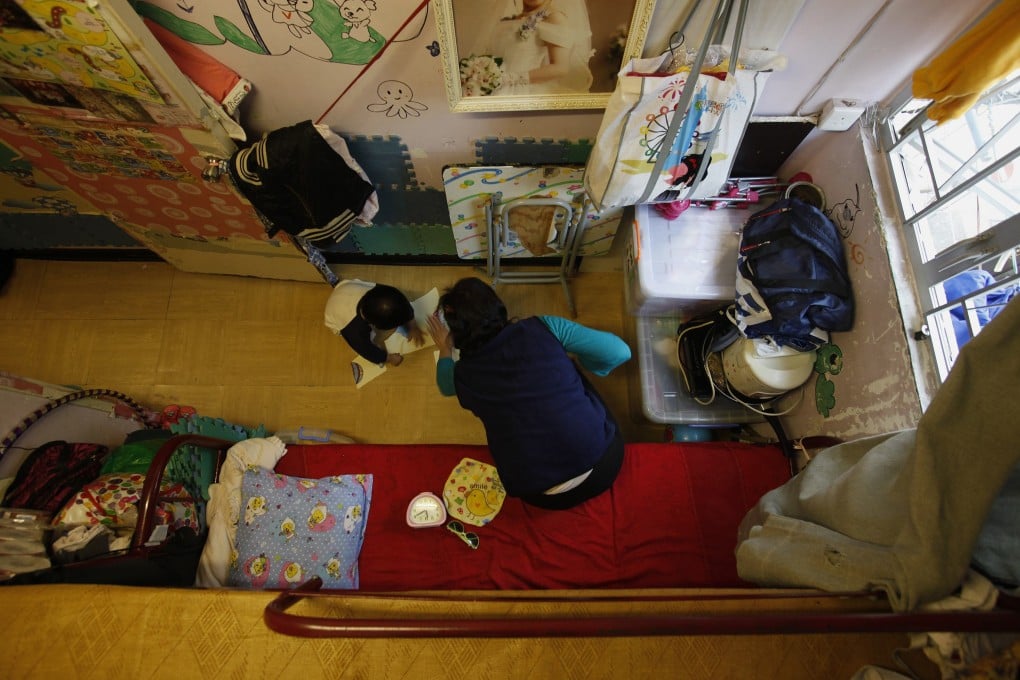Government must come up with a solution to the shame of subdivided flats
As this newspaper reported on Tuesday, the conditions in subdivided flats are so distressing that some people end up sleeping in the street.

When people would rather sleep in the street than live under a roof, something is clearly amiss. We are, of course, talking about the notorious subdivided units - shoe-box partitions that can barely fit in a bed for individuals or families, all crammed into what would have been a standard flat for one family. As this newspaper reported on Tuesday, the conditions in subdivided flats are so distressing that some people end up sleeping in the street.
The story of Ah Keung may be extreme. The 48-year-old makes around HK$4,000 a month from doing odd jobs and has shuttled between sleeping on the streets and in subdivided flats over the past eight years. He currently beds down under a pedestrian flyover in Yau Ma Tei, saying it is more pleasant than living in a cubicle. But he and dozens of others are to be evicted, as district councillors have decided to "beautify" the area by fencing it into a storage area for rubbish bins.
This sorry state of affairs speaks volumes about the city's housing conundrums. An official estimate put the subdivided housing population at about 171,000, prompting calls for urgent government intervention. Officials have floated the idea of regulation with a licensing system - a halfway house between a total ban and keeping the status quo. But it was soon shot down amid worries that many tenants living in unsafe units would eventually be displaced. Flats that can meet fire and building safety requirements will charge more exorbitant rents.
An advanced economy like Hong Kong has no place for such shabby housing. That subdivided units have mushroomed into a sizeable slice of the housing market is a real shame. The proliferation of such accommodation, many of which are illegal and unsafe, is indeed a time bomb waiting to explode. They are as much an affront to human dignity as they are safety hazards.
Speaking at a town hall session in August 2013, Chief Executive Leung Chun-ying said the plight of those living in subdivided units sometimes kept him up at nights. It is regrettable that the issue was not pursued further when the government finalised the housing strategy for the next 10 years. Admittedly, the prevalence of subdivided units makes an immediate ban unrealistic. But the community still expects a clear commitment from the government to phase out such housing in the long term. We trust Leung is not sweeping the issue under the carpet. Doing nothing is not an option.
